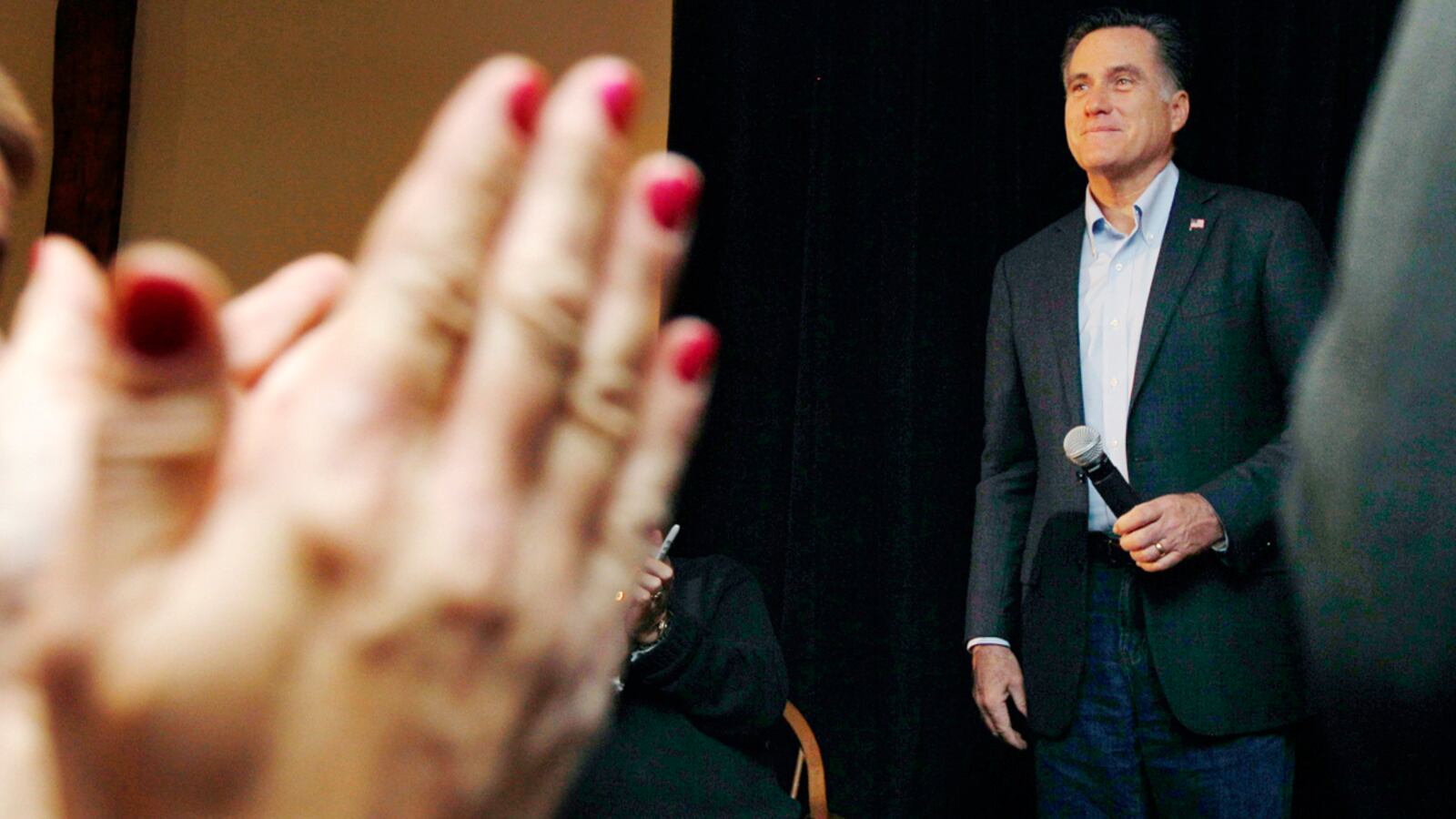Mitt Romney’s apparent absence of conviction is generally seen as a liability, but when it comes to women’s rights, it’s also an asset. It allows voters unhappy with Obama but uncomfortable with the religious right to pretend that he doesn’t mean what he says about banning abortion. In this sense, the attacks from his primary rivals just strengthen him for the general election, convincing fiscally conservative but socially liberal voters that they needn’t fear a kulturkampf from a Romney administration.
Yet as a Mormon bishop, Romney displayed a genuine ardor for controlling women’s childbearing choices, and a striking lack of empathy toward those under his care. The latest example of this comes from Michael Kranish and Scott Helman’s new book, The Real Romney, excerpted this month in Vanity Fair. In it, they tell the story of Peggie Hayes, who, as a teenager, baby-sat for the Romneys. She married young, had a child, got divorced, and at 23 was living in the Boston area as a single mother when she found herself pregnant again. It was 1983, and Romney was the bishop of her ward, the Mormon equivalent of a parish. There was no question of abortion—Hayes was ready for a second child. But, according to the book, Romney told her that, because she was unmarried, the church expected her to put the baby up for adoption.

“She told him she would never surrender her child,” Kranish and Helman write. “Sure, her life wasn’t exactly the picture of Rockwellian harmony, but she felt she was on a path to stability. In that moment, she also felt intimidated. Here was Romney, who held great power as her church leader and was the head of a wealthy, prominent Belmont family, sitting in her gritty apartment making grave demands. ‘And then he says, "Well, this is what the church wants you to do, and if you don’t, then you could be excommunicated for failing to follow the leadership of the church,"’ Hayes recalled.” Romney later denied that he’d made this threat. Hayes soon left the church on her own.
Her story echoes earlier reports about the way Romney treated women under his authority, particularly the case of Carrell Hilton Sheldon. In the early 1980s, when Sheldon, a mother of four and a member of Romney’s congregation, was several months pregnant, she was diagnosed with dangerous blood clots and advised by her doctors to have an abortion. Although her stake president—a Mormon office higher than that of bishop—recommended that she go through with it, Romney reportedly objected. He apparently went to the hospital to try to dissuade her, reportedly telling her, “Well, why do you get off easy when other women have their babies?”
According to Ronald B. Scott, the Mormon author of Mitt Romney: An Inside Look at the Man and His Politics, when that didn’t work, Romney went to Sheldon’s parents’ house. “He was telling her father not to let her have the abortion, and her father threw him out," Scott told the Los Angeles Times. "He was appalled at the arrogance of Romney."
These episodes are telling both for what they say about Romney’s attitude toward women and for what they say about his general imperiousness. "Elitist" is a word that gets thrown around a lot in politics, usually to describe someone who eats arugula or fails to feign interest in NASCAR. But Romney has shown himself to be an elitist in the word’s original sense—a person utterly convinced of his own natural authority and indifferent to the suffering of those beneath him. Most of his principles may be pliable, but his faith in his right to exert his will over others, regardless of their own desires, seems quite steadfast.
Correction: This article originally stated that a "ward" is the Mormon equivalent of a diocese, when it is actually the equivalent of a parish. It has been updated.






